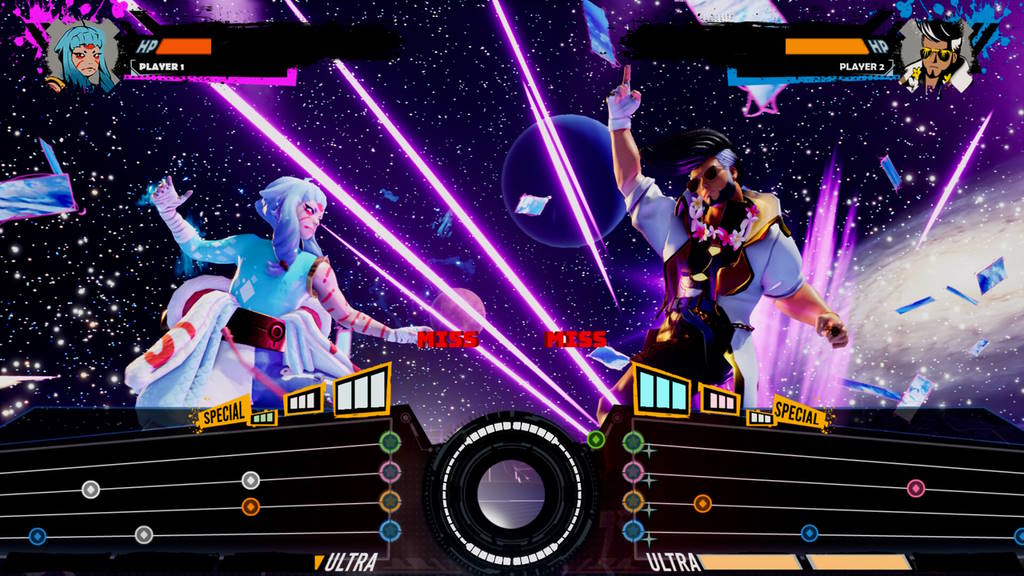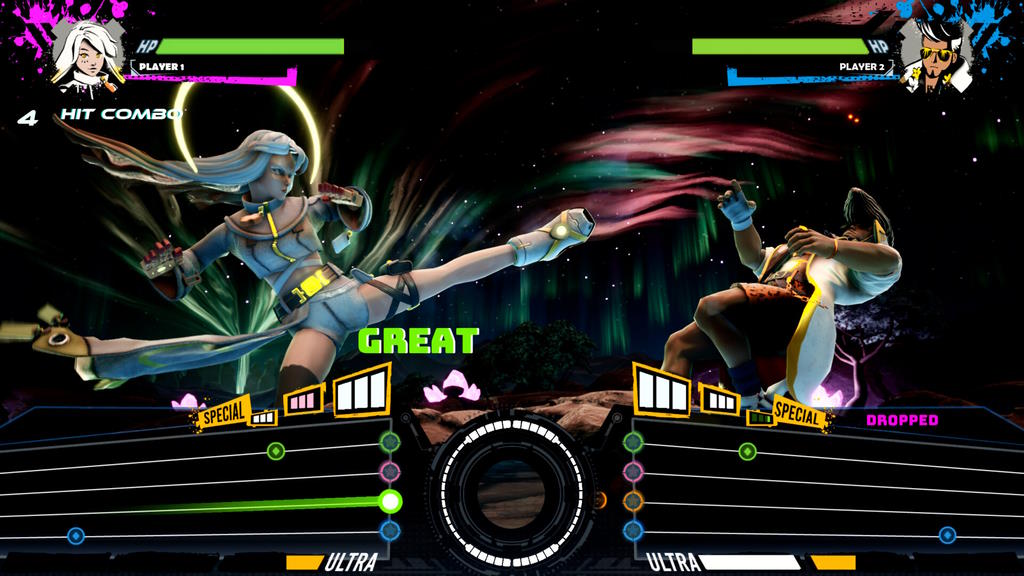God of Rock review
We are barely into the second quarter of 2023 and already there have been two oddball rhythm action cross-pollinations for me to get my head around. Following the emotive and ethereal Atone that blended exploratory role-playing tropes with a musical combat system, Modus Games’ intriguing and original God of Rock combines one on one fighting elements with a supplementary Harmonix-style mechanic.
Combat involves keeping an eye on the string of notes that fly across the bottom of the screen, timing your button presses accordingly in order to execute attacks on your opponent, or even block/parry when you both hit in unison. Missing notes leaves you wide open to damage, whilst maintaining perfect accuracy will see you grind down your enemy. It is conceivable that two well-matched foes could go on nearly endlessly, however the longer a battle continues, the more complex and bonkers the difficulty gets.

Adding to the fighting game flavour are the inclusions of Super and Ultra attacks, which are triggered using what one would describe as conventional inputs (quarter circles, et al), and have all manner of different effects, including dealing damage, marking your counterpart with a load of unblockable random notes (a bit like when you annihilate your foe with gems in puzzle games), healing your own vitality, or even speeding up their notes temporarily. In theory, this is a cool system but sometimes it can be tricky to know when to pull them out of your arsenal so as to not compromise your underlying control over the rhythm, whilst executing them may also be a pain for those less experienced with fighting games. When your opponent is about to attempt special attacks, there is also a reversal mechanic available; the circular indicator in the middle of the screen will flash to tell you what kind of attack is about to be unleashed – and you can counter it by executing a more impactful attack of your own should you wish. The trouble is, like much of the stuff in God of Rock extracurricular to the core rhythm action, it is distracting and you quickly get yourself into more grief than it is worth by taking your peepers off your commitment to maintaining accuracy.
Arcade mode is quite easy to beat unless you ramp the difficulty up a few notches. God of Rock shines brightest when you are playing against another human opponent. The online lobbies are superb and it is dead simple to get a game going with minimal loading fuss and intuitive options for rematches and stage/song selections.

Despite its bonkers idea, it is still a very likeable affair. The characters are beautifully designed, with some clearly based on real-life superstars like Elvis and David Bowie. They have some sleek cutscenes and interesting backstories behind their entry into the tournament that forms the backdrop to the action. Whilst there are no licensed tunes, to have 40 completely original and mostly eclectic compositions is bloody impressive even if some of them are a bit samey. You have to tip your hat to Modus for at least attempting something different, and I genuinely feel that with some thought and a few tweaks – maybe even separating some of the combat sequences – then they could have a proper banger on their hands if they ever decided to revisit this rocktacular universe.





